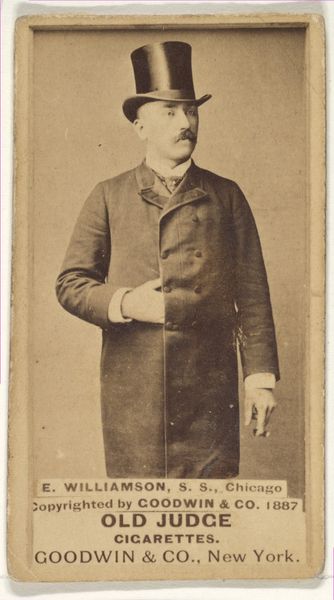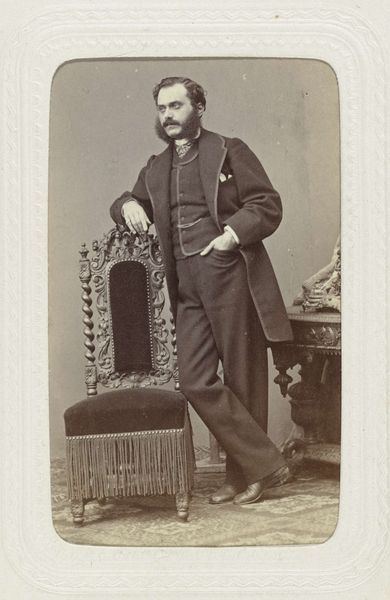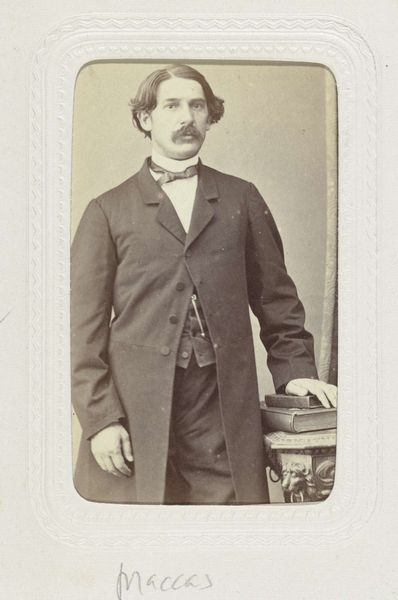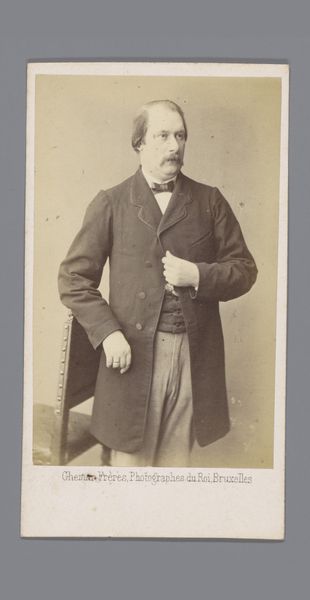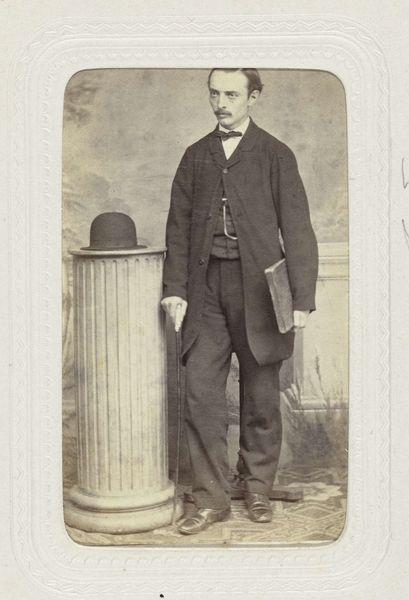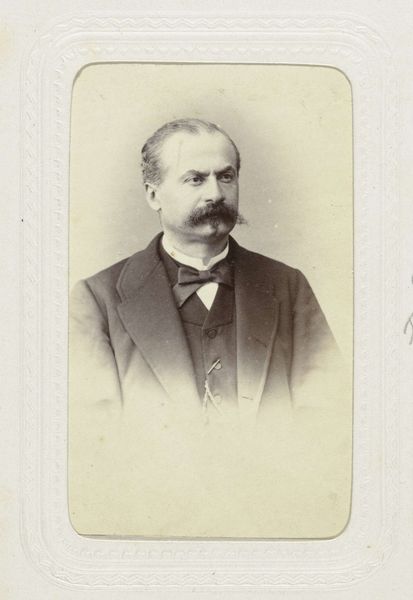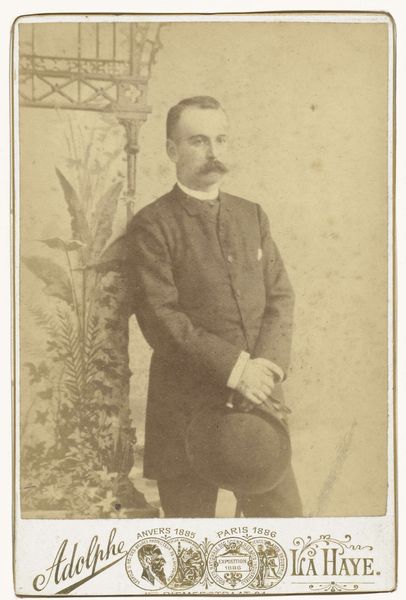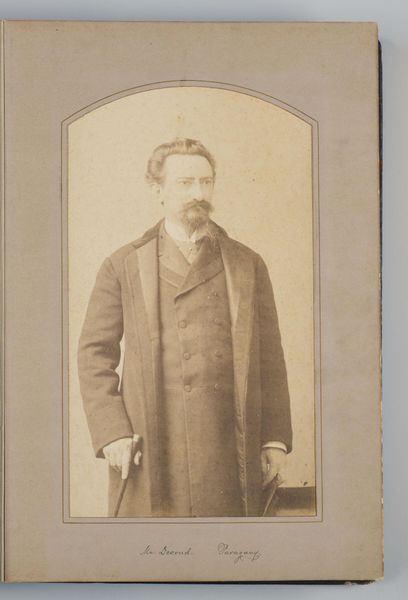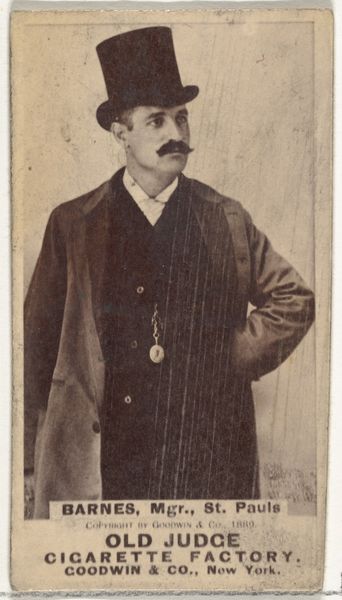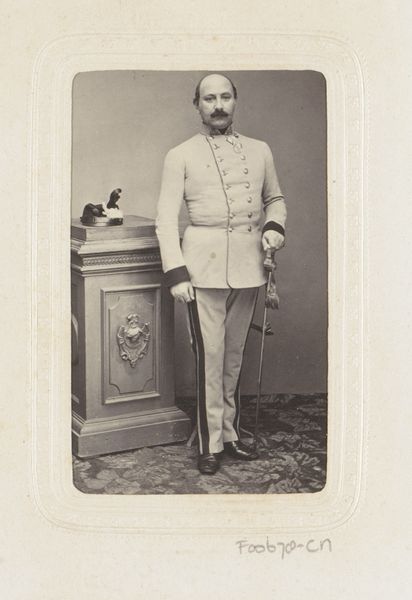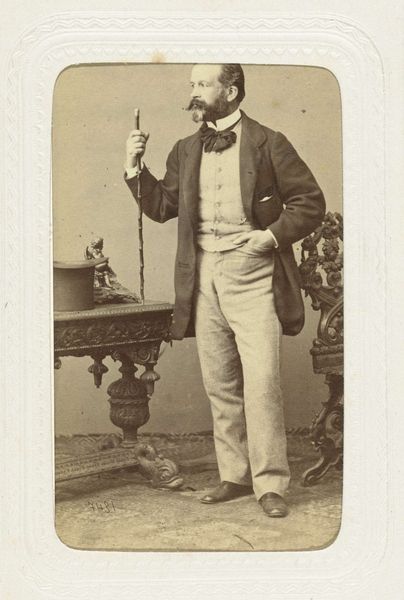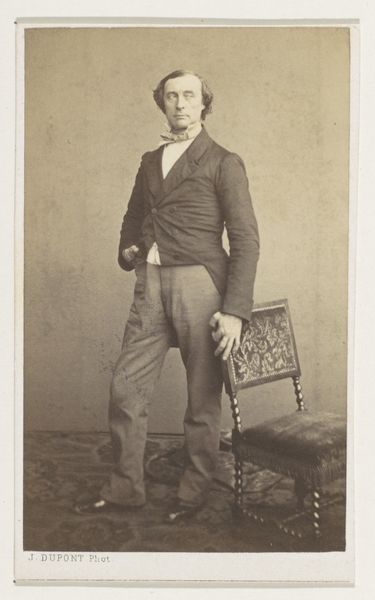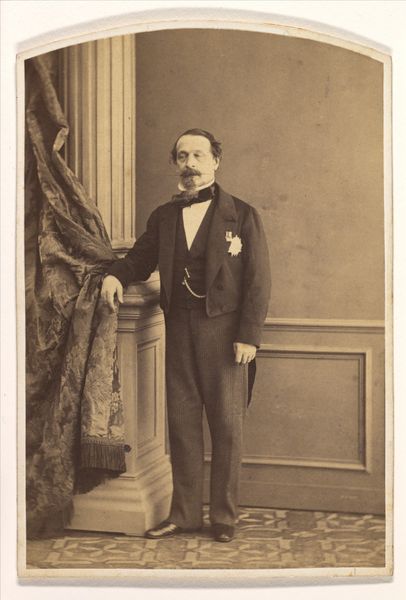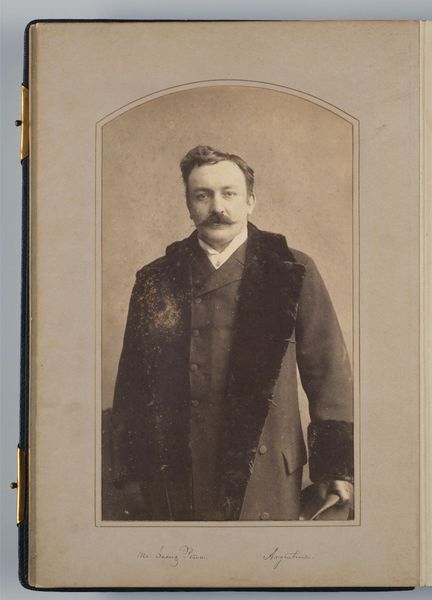
Studioportret van een man met een gedraaide snor en een sik c. 1863 - 1866
0:00
0:00
abdullahfreres
Rijksmuseum
#
wedding photograph
#
photo restoration
#
retro 'vintage design
#
archive photography
#
historical photography
#
old-timey
#
yellow element
#
19th century
#
photographic element
#
gold element
Dimensions: height 80 mm, width 54 mm, height 296 mm, width 225 mm
Copyright: Rijks Museum: Open Domain
Editor: We're looking at a photograph entitled "Studioportret van een man met een gedraaide snor en een sik," which translates to "Studio Portrait of a Man with a Twisted Moustache and a Goatee," by Abdullah Frères, dating from about 1863 to 1866. It’s giving off a very formal and posed vibe, very much of its time. What’s your read on this piece? Curator: It is, indeed, quite telling of its era. Photography in the mid-19th century was heavily influenced by the conventions of portrait painting. But what's crucial here is understanding the cultural context of representation. How did power dynamics manifest in these early photographic practices? This image isn’t just a simple portrait; it's a curated performance of masculinity and status. Consider, for instance, the man's meticulously styled facial hair. What message was he trying to convey through this image? Editor: That's a good point. It does seem very intentional. So, are you suggesting that his carefully chosen appearance signifies a certain societal role or aspiration? Curator: Exactly. Think about it: in a period of rapid social change, such displays of cultivated elegance were ways of solidifying one's place in the hierarchy, making explicit claims of superiority, power and access. This performative aspect of photography raises key questions. Editor: It's interesting to think about how even something that seems straightforward can have deeper cultural significance. I wouldn't have considered all those social aspects if you hadn't pointed them out. Curator: Precisely! The intersection of art and societal values shows this portrait reflects the sitter's identity in relation to class, power, and social aspiration, making it a fascinating historical document and opening a way to reflect about similar phenomena today. Editor: I’ll never look at an old photograph the same way again!
Comments
No comments
Be the first to comment and join the conversation on the ultimate creative platform.
